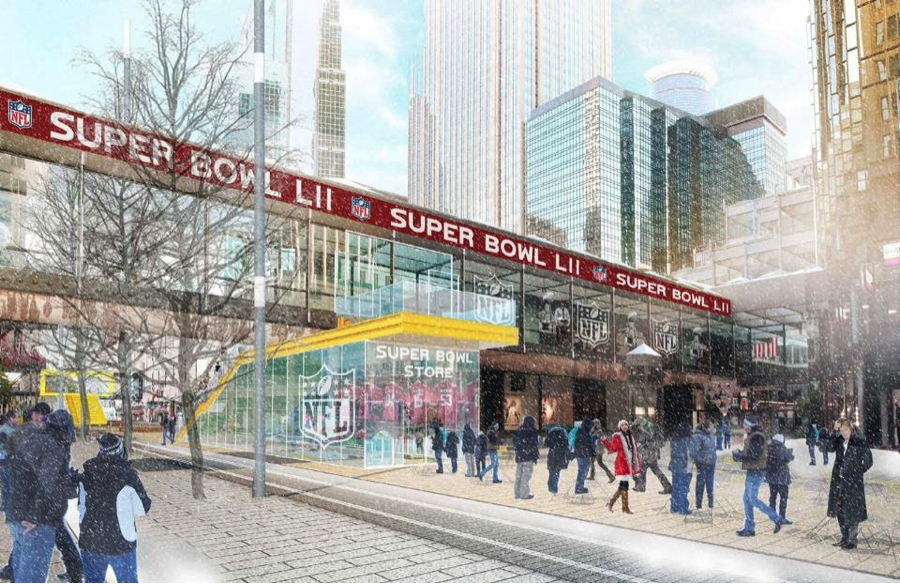Economy
Minnesota Will Host 2018 Super Bowl, but What’s It Worth?
Published:
Last Updated:
The Minnesota Vikings weren’t winners on the football field last year, but they just won a very important bid. The team’s new billion-dollar stadium, set to be built where the old Metrodome stood, will host the Super Bowl in 2018. The NFL announced the news earlier this week, revealing Minneapolis beat Indianapolis and New Orleans for the game. Vikings owner Zygi Wilf said his team is “very proud,” and fans expectedly erupted on Twitter, but what about the city itself?
The economic impact
It’s set to make millions. If recent history is any indication, the economic impact from the 2018 Super Bowl will be enormous. Over the past five years, the game has stimulated local spending by an average of $460 million per year. The 2011 Super Bowl, played at Cowboys Stadium in Arlington, Texas, likely generated over $600 million in economic activity, according to Marketing Information Masters. This year’s game between the Denver Broncos and Seattle Seahawks, by comparison, could have contributed between $500 million and $600 million to the East Rutherford area.
ALSO READ: Cities Paying the Most for Sports Teams
Determinants of local spending vary, but they generally include hotel, restaurant, retail, and transportation-related revenues. Depending on the city, cultural events may also take in additional money. Based on a 2012 study of Indianapolis’ Super Bowl, thousands of jobs – many of which, are full-time – are also created.  Sources: Various media estimates and the NFL. Graph compiled by author. Numbers displayed are estimates only.
Sources: Various media estimates and the NFL. Graph compiled by author. Numbers displayed are estimates only.
Digging deeper
In terms of market size, Minneapolis is no East Rutherford or New Orleans, and its cold-weather climate doesn’t exactly ooze tourism. Still, the city’s recent renovation efforts, expected to cost over $1 billion when they’re finished, will likely create more avenues for local spending during the Super Bowl. The new Vikings Stadium, set to be the crown jewel of NFL venues after it opens in 2016, should also help. Richard Davis, CEO of US Bancorp and co-chair of the Vikings’ Super Bowl delegation, pegged a figure of $350 million on the 2018 game, according to TwinCities. Although plans are still in flux, potential attractions include a mile-long “Super Bowl Boulevard” (seen below), and a partnership with the annual St. Paul Winter Carnival. As USA Today points out, there are also plans to build several miles of enclosed skyways near the stadium. Winter temperatures in the area average a low of just 12°F in February.
ALSO READ: Football Teams with the Most-Expensive Tickets
The bottom line
Of course, these numbers are only estimates. Some sports economists, like Robert Baade, argue that the real economic impact of a Super Bowl is smaller than what many studies suggest. Earlier this year, Baade told the Phoenix Business Journal that the game’s fans might crowd out local consumers. This “substitution effect,” Baade says, negates some of the benefits the Super Bowl brings, and is something that’s often ignored by analysts. Still, a final point to consider is this: In Minneapolis, there might be less ‘crowding out’ than at a host city like New Orleans or Arlington. It regularly ranks outside of the U.S.’s top 50 most visited destinations. That, along with the hype surrounding the new Vikings Stadium, makes Davis’ $350 million estimate reasonable. And for my money, a number similar to the 2012 game in Indianapolis sounds about right. After three losing seasons in the past four years, the Vikings have to be happy about getting some positive exposure for a change.
The thought of burdening your family with a financial disaster is most Americans’ nightmare. However, recent studies show that over 100 million Americans still don’t have proper life insurance in the event they pass away.
Life insurance can bring peace of mind – ensuring your loved ones are safeguarded against unforeseen expenses and debts. With premiums often lower than expected and a variety of plans tailored to different life stages and health conditions, securing a policy is more accessible than ever.
A quick, no-obligation quote can provide valuable insight into what’s available and what might best suit your family’s needs. Life insurance is a simple step you can take today to help secure peace of mind for your loved ones tomorrow.
Click here to learn how to get a quote in just a few minutes.
Thank you for reading! Have some feedback for us?
Contact the 24/7 Wall St. editorial team.